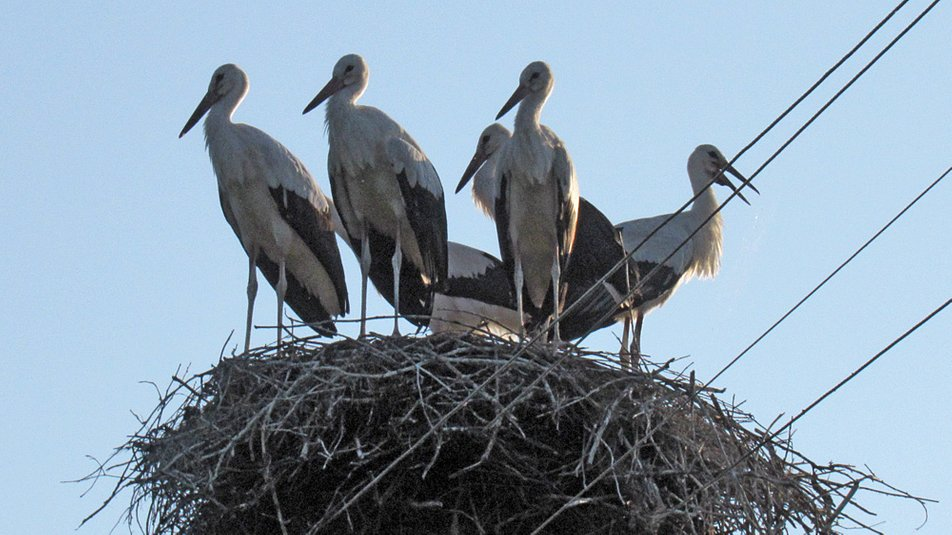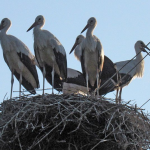It was ironic – or entirely appropriate – that President Volodymyr Zelensky was trying to walk a diplomatic and existential tightrope over Ukraine’s future on 21 November.
Dignity and Freedom Day is the date Ukraine celebrates two revolutions that determined the path of today’s Ukraine: the Orange Revolution of 2004 and the Revolution of Dignity of 2013–2014.
And dignity and freedom for Ukraine was what Zelensky said he was trying to preserve during an emergency address to the nation as he faced an apparent deadline from US president Donald Turmp for accepting a 28 point “peace” plan.
A deadline of November 27, American Thanksgiving, for a plan that would reportedly have Ukraine hand over the rest of the mostly Russian-speaking eastern Donbass region not yet captured by Russia, limit the size of Kyiv’s military, and prevent Ukraine joining NATO – longstanding Russian demands.
“Now is one of the most difficult moments in our history,” Zelensky said, with “a very difficult choice: either losing dignity or risk losing a major partner.”
Rejecting the plan risked losing US weapons and US intelligence.
The deadline passed without any agreement but prompted a flurry of diplomatic activity and alternative proposals from a group of European countries including the United Kingdom, Germany, France, Poland and Italy.
At the same time Zelensky faced a growing corruption scandal involving about $100 million in kickbacks which forced his key negotiator with the USA and Russia to resign. Andriy Yermak was Zelensky’s chief of staff and a long-time Zelensky confidant who was seen as the second-most powerful man in the Ukrainian government.
The AEJ UK has another letter on life in Ukraine from Kateryna Popova, recently returned to her native Ukraine after completing an MA in War Studies in London where she joined meetings of the AEJ UK.
20 November 2025, Kyiv
Storks take a very special place in the hearts of Ukrainians. When entering a Ukrainian village, you will see electricity towers, roofs and trees with large nests on them. It is common for locals to rescue injured storks, as they symbolise spring and stability. If there are storks on your roof, it means you have a home that is good enough for them to nest. There is a bit of sadness to it, as storks fly to warmer countries in autumn. And a flock of storks in the sky symbolically represents traditionally difficult Ukrainian life, when you have to migrate because your country is always at the centre of events.
I have opened my laptop so many times to write a follow-up to my column I shared in June, but there is too much news, too fast, too soon and every day. Several times per day. I had to coach my US friends on how to stop worrying about Trump’s rhetoric, because the best lesson you can learn from a Ukrainian is to stay calm. There is some rural wisdom in that: your neighbours will say whatever they want; you have to smile, pretend, and go on, because this is precisely what pisses them off.
Today I saw a Financial Times editorial about Ukraine calling on Zelensky to fire Yermak, and my first reaction was “Wow, FT is that deep into Ukrainian politics”. Frankly, we have come a long way. It might still be negative press, but for me, just an ordinary Ukrainian lady who has been to two Maidan revolutions, it means that somebody in this world cares about Ukrainian freedom, and we are not alone.

I am happy to see NABU’s [National Anti-Corruption Bureau] investigations. I am happy to read the news uncovering corruption in Ukraine. I am happy that there are so many posts about the ugly side of big politics. It is the course of events that unmasks a simple truth: we can conduct such investigations, and we have the freedom to speak about them. Democratic countries always have the worst news, and everything is always well in totalitarian regimes. Chernobyl will be on fire, and you will only see happy tiger cubs born at the local zoo in the news.

When we analyse political communication, we often get fixated on words, while the key lies in discourse theory. It is not the words that really matter, nor the actions, but the course of actions and the course of meanings the actors convey through their behaviour.
In 2004, 5 Channel [see footnote 2] was the only TV channel broadcasting from the Maidan; everyone else was pressured to pretend that Yanukovych won the election. Truth was not a matter of discussion; you had to have courage to have access to it. At the end of 2013, the entire journalist team at Korespondent, a major Ukrainian media outlet, left the publication as a protest against Kurchenko, one of Yanukovych’s friends, who bought Korespondent to (literally) control the narrative in favour of Russian support that Yanukovych was about to get.
At 6 a.m. on February 24, 2022, I was frantically trying to decide which media to read to understand what was going on. To my surprise, both the pro-government and opposition media [see footnote 3] reported the invasion live as it was. This was when the Russian Federation started losing the information war.
At the beginning of the invasion, I heard so much excitement from my foreign peers about Zelensky. Literally everyone wished he were their president. For me, as for most Ukrainians, he has always been just a human who can be right and wrong, and the last thing you want is to idealise a political figure. Democracy is about staying critical. And with thousands of years of geopolitical tensions, regime changes, migration, and blood spilt, Ukrainians started being critical about the government long before foreign media did. For all I know, both Ukrainian Maidan revolutions started on November 21.
I am writing this sitting in a dark, cold office at the heart of Kyiv, near one of the McDonald’s [see footnote 4]. The Russians severely damaged our grid in the autumn, and now we spend 12-16 hours per day without electricity. But frankly, how much do we need? My EcoFlow device keeps my gadgets charged, and everything else is easily managed if you follow the schedule.

Keep calm and carry on. The storklings need a home to come back to.
Kyiv, November 20 2025
Kateryna Popova
Stratcom and media consultant from Ukraine
MA Strategic Communications, King’s College London
Footnotes:
2: 5 Channel belongs to a former Ukrainian president Petro Poroshenko who lost the election to Zelensky in 2019.
3: The ongoing Ukrainian government TV initiative named Telemarathon with a united editorial news team was formally launched in March 2022. Currently it is openly criticised by Ukrainian experts and media, e.g. Detector Media.
4: McDonalds resumed its operations in Ukraine in September 2022.
Zelensky addresses nation – BBC News 21 November
The Trump peace plan – AP
Trump peace plan – Axios
Diplomacy on Trump peace plan – BBC News 1 December
Ukraine court orders arrest of another Zelensky associate – Kyiv Independent 1 December
The Ukraine corruption scandal – Politico 12 November
Ukraine corruption investigation shows imperfect system works – The Independent Sam Kiley 29 November
Europe facing hard choices on Ukraine – AEJ UK 23 May 2025








